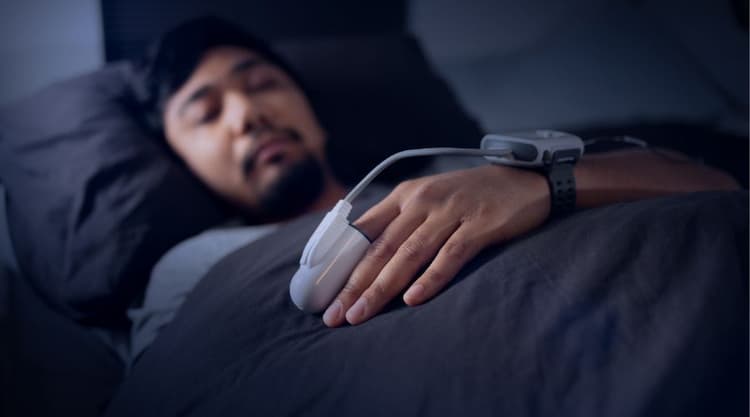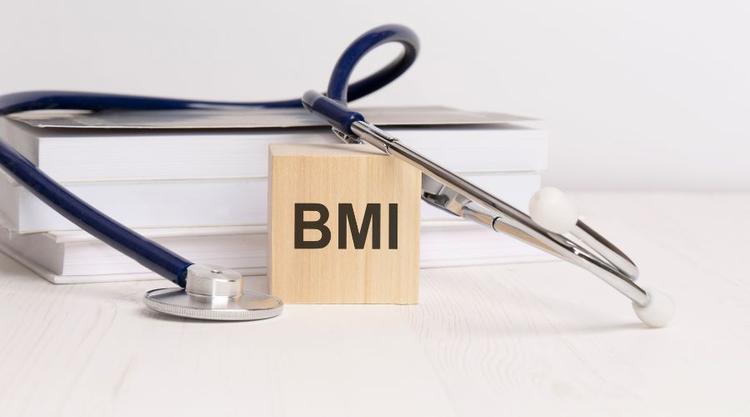Don’t Forget These Medical Tests While You Turn 50

Medically Reviewed By
Dr. Ragiinii Sharma
Written By Prekshi Garg
on Aug 25, 2022
Last Edit Made By Prekshi Garg
on Mar 16, 2024

Turning 50 is considered a big milestone in people’s lives. But, as one of the Founding Fathers of the United States of America, Benjamin Franklin, once said, “An ounce of prevention is worth a pound of cure.” By the time you turn 50, your body has lived through years of work, stress, unkempt care and probably has built up a lot of undiagnosed diseases.
What are some of the Common Health Concerns after 50?
Our bodies are very intricately designed and operated. But, much like a machine, when you turn 50, your body has likely undergone a lot of wear and tear. So, the need for thorough and routine diagnostic testing isn’t just a choice but a sheer necessity. The health risks after 50 often manifest in different ways in men and women, depending on their physiological functions. Some of the common health risks in men and women after 50 include:
| Health Risks in Men | Health Risks in Women |
| Obesity | Obesity |
| Loss of libido | Menopause |
| Joint pain and stiffness | Cancer risks |
| Brain fog | Joint issues |
| Memory loss | Memory loss |
| Loss of muscle tone | Brain fog |
| Cancer risk | Continence |
| Stroke | Vitality |
| Cardiovascular complications | Vision related issues |
| Vision related issues | Cardiovascular complications |
| Vitality | Reproductive anatomy related issues |
These are just a handful of the standard health risks that increase by the time you are 50. So, keeping a check on the overall well-being via regular testing is very essential to live a healthy long life
What are the Recommended Tests after 50?
When addressing the list of required medical tests after 50, we wanted to make navigation easier for the readers. You need to realize that every person’s body is different and some diseases are more prone to affect men than they would women and vice versa. And still some people can be naturally more prone to some diseases than others. So, when sorting through the list of tests, we wanted to divide it into three categories:
- Generic tests
- Tests specifically for women
- Tests specifically for men
List of Generic Health Tests after 50:
1. Heart Health Tests
Cardiovascular complications get worse with age. So, your chances of sustaining a heart attack might be higher when you are 50 compared to when you are 30. There are external influences like diet and lifestyle as well. But, prioritizing routine cardiac screening is crucial after you turn 50. The heart health tests involve a series of blood tests and imaging tests to assess the risks of blockages in the heart, the overall heart function and the potential risks of strokes and heart attacks for the individual. Some of the most important heart health tests include:
- Lipid profile test
- 2D ECHO
- ECG
- Stress test
- Blood pressure monitoring
You can schedule these tests either every 6 months or once a year, depending on your health and doctor’s advice.
2. Diabetes Screening
The risk of Type-2 Diabetes is at its peak when you turn 50. Not just 50, according to the American Diabetes Association, people above the age of 35 should indulge in routine diabetes screening. Since type-2 diabetes is primarily a lifestyle disorder, men and women with sedentary lifestyles and poor dietary habits are at heightened risk of struggling with this issue. Most people above the age of 50 are at risk of being prediabetic. An early diagnosis with optimal management has the potential to reverse the condition instead of letting it get worse. So, getting a routine diabetes screen is this crucial. Some of the standard tests for diabetes screening are:
3. Cancer Screening
The advancements in the medical field has made cancer screening a lot more refined and accessible. Both men and women after 50 have heightened risks of cancer. In men, prostate cancer is quite prevalent. While, in women, the risks of breast cancer, ovarian cancer, cervical cancer, etc. are high. There are several types of cancer screening tests, including: PSA Test (Prostate-Specific Antigen) – Prostate cancer Mammography – Breast cancer Pap smear – Cervical cancer CA 125 Test (Cancer Antigen 125) – Ovarian cancer CA 19.9 test (Cancer Antigen 19.9) – Pancreatic cancer If you have a genetic predisposition or you are noticing early symptoms, it is ideal to get the prescribed tests for cancer screening instead of delaying them.
4. Routine Health Screening Tests
Besides these primary and high-risk tests for chronic ailments, your healthcare provider will also prescribe a list of a few generic and routine health screening tests to get done after you have turned 50. Since the risks of sudden onset of chronic complications are high as you age, a comprehensive full-body check-up is considered ideal.  Some of the routine tests include:
Some of the routine tests include:
- Renal function test
- Thyroid function test
- CBC Test
- Vitamin B12 test
- Vitamin D test
- Routine urine test
- Uric acid test
- Calcium test
- Serum electrolyte test
- Eye examination
- Dental check-up
These are some of the popular and important generic health screening tests that every man and woman above 50 should get every 6 months to one year.
List of Tests Specifically for Men above 50
1. Colonoscopy
Men are at heightened risk of colon and rectal cancer more than women. So, once you turn 50, your doctor might prescribe a routine colonoscopy to monitor any unusual growth in the colon or rectal region. This test isn’t done as part of the routine health screening. Instead, your doctor might prescribe the test if you are complaining about symptoms that have to do with the colon region. If your doctor suspects a risk of colon or rectal cancer, they will also excise a tissue sample during colonoscopy to run a biopsy to confirm their suspicions. Since colorectal issues are quite profound in men, getting a colonoscopy might provide a more accurate diagnosis.
2. Eye Examination
The risks of cataract, glaucoma and macular degeneration are quite at their peak in men when they turn 50. If you are struggling with vision and have a hazy or unclear field of vision, getting a regular eye check-up is equally important. Early diagnosis and treatment of any of the above mentioned eye problems can prevent the symptoms from advancing, enabling people to have a comfortable life without any risks of disability down the road. If you are already diagnosed with diabetes, heart complications or have a genetic predisposition, getting an eye check-up is crucial after 50.
3. Looking for Moles
Risks of skin cancer in men after 50 are quite high and often ignored. Since the early symptoms of skin cancer are quite subtle and not noticeable at times, the condition is often diagnosed at a later stage. Your work is to prioritize your skin health too. And, the only way you can do that is by paying closer attention to the skin. If you notice moles and sudden bruising on the skin, get it checked by a doctor.
4. Depression Screening
Depression is another overlooked issue that most men don’t pay attention to. If you are feeling defeated, tired and done with life as you age, getting a comprehensive evaluation is important. It allows you to assess your state of mind and take relevant steps to address and fix the issue before things take a turn for the worse.
List of Tests for Women after 50
1. Hepatitis C Screening
Although we are mentioning this under the list of tests for women, Hepatitis C screening is something you should prioritize at 50, irrespective of gender. The prevalence of the hepatitis C virus in the body can damage the liver, leading to risks of liver cancer or complete liver failure. It is a silent epidemic, primarily because people don’t prioritize testing for it. If you have a family history of the condition or you are experiencing early symptoms of the disease, get tested.
2. Bone Density Test
With the onset of menopause, several women are at risk of developing osteoporosis, a condition that eats away at the bones, making them brittle and weaker. If not treated on time, osteoporosis can lead to unexpected and painful fractures in women. The condition is tested via an X-ray. So, if you feel pain in the bones and joints and don’t feel comfortable with your stature, discuss the symptoms with your doctor and get the relevant tests done.
3. Pap Smear
Although we have mentioned this before under cancer screening tests, it deserves an independent mention in the list too. The risks of reproductive anatomy-related cancer in women are quite high, especially after menopause. Getting a pap smear every 6 months to a year can assess for potential risks of cervical cancer or lesions in the cervix. If you are witnessing any symptoms and feel uncomfortable with your body, it is always ideal to discuss your options with the doctor.
Frequently Asked Questions
-
What tests should a woman have every year?
As a woman, there are several tests that should be included as part of the yearly health screening, including HPV tests, mammograms, pap smears, blood tests for lipid profiling, thyroid, blood count, etc. Besides that, hearing tests and vision tests are important too.
-
How often do I need a Pap smear after 40?
The frequency of pap smears depends on a person’s sexual lifestyle. If you are sexually active, getting a pap smear every 3-5 years is considered ideal, especially for the assessment of HPV or cervical cancer.
-
How often should I get a PSA test?
PSA test in men should be done every 3-5 years. However, if you are witnessing any symptoms, it's ideal to prioritize immediate medical interventions without further wait. 
Conclusion
Diagnostic testing is a crucial part of preventing healthcare risks and complications. Even if you feel fit as a fiddle at 50, getting routine diagnostic tests is not a choice but an important part of your well-being. From the routine blood tests to the intrusive imaging techniques, we’d recommend getting them all done every now and then to lead a healthy and disease-free lifestyle. Redcliffe labs streamline routine and extensive health screening with attractive and affordable packages that enable you to prioritize your well-being before anything else.



